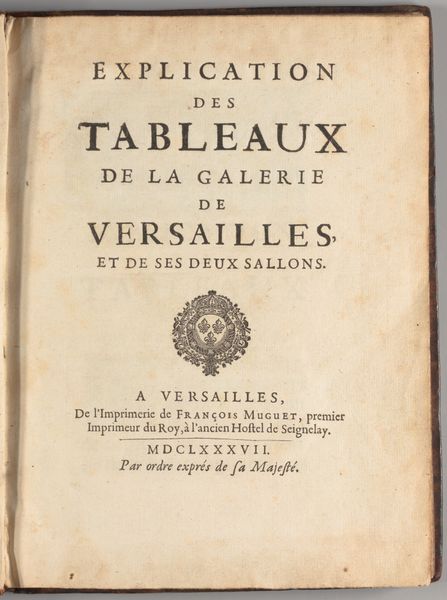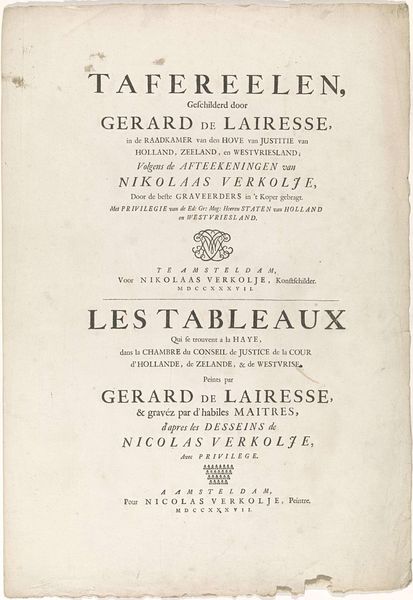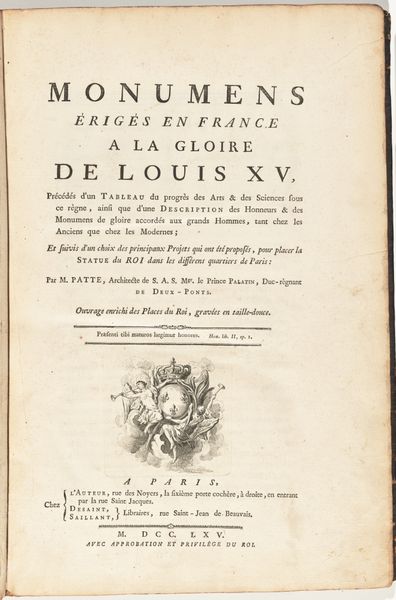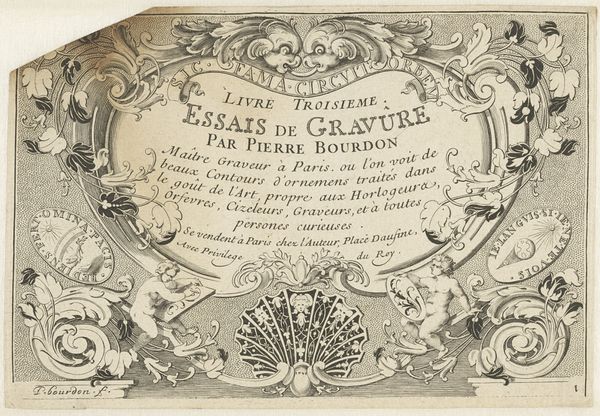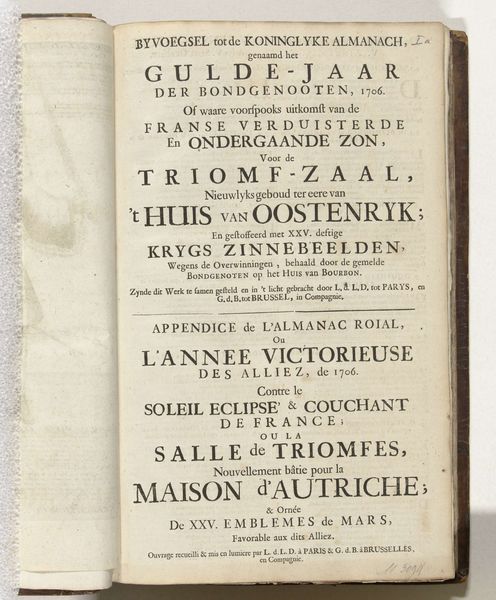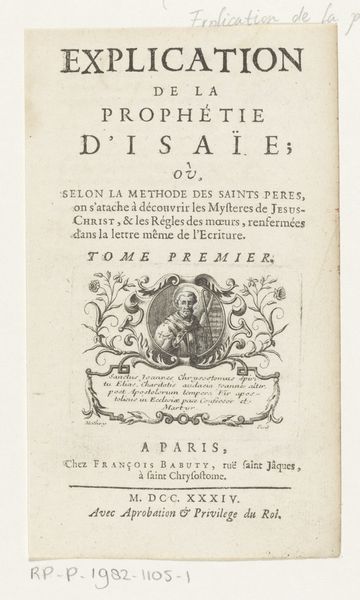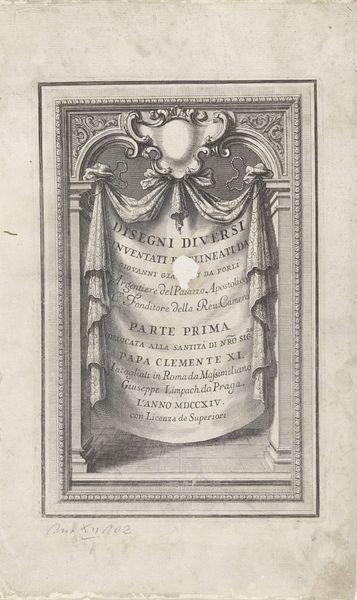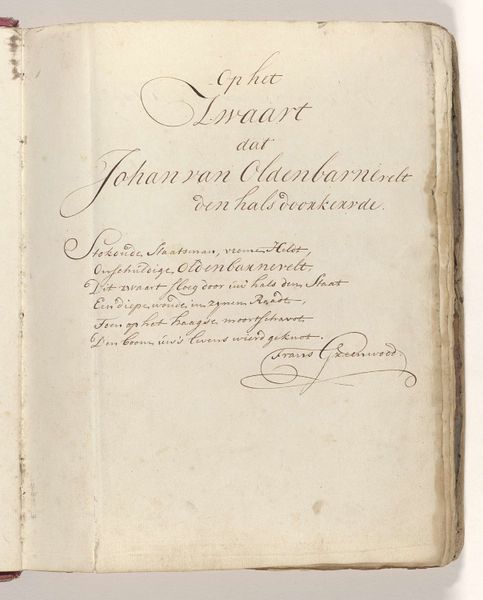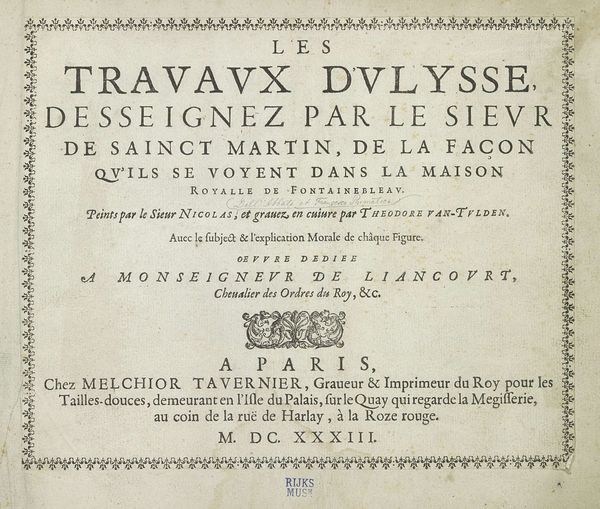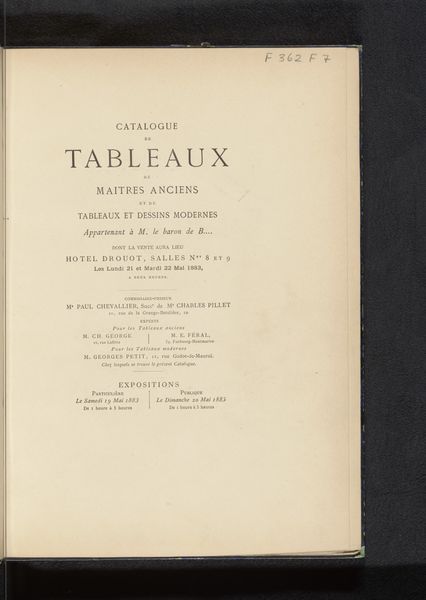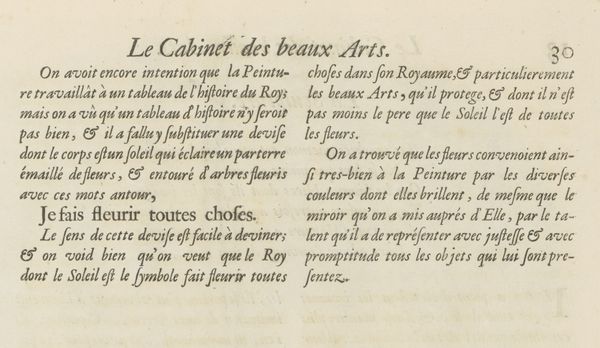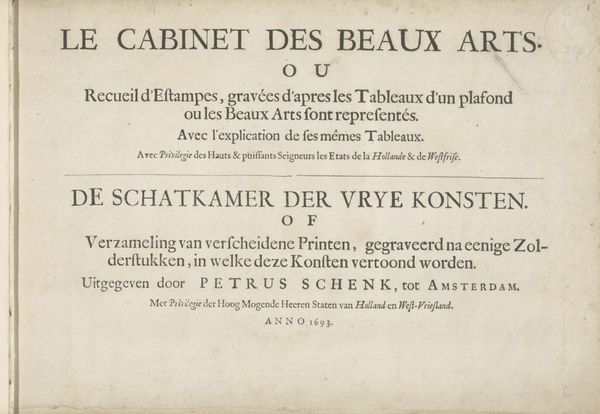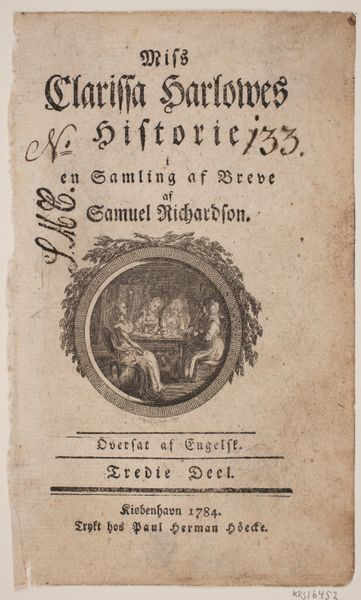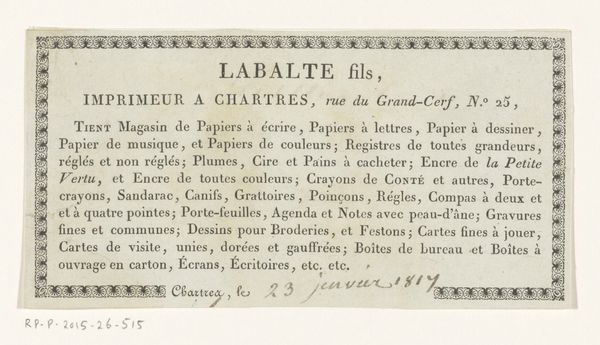
Titel voor de prentenserie over de affaire Marie-Catherine Cadière en Jean-Baptiste Girard c. 1735
0:00
0:00
drawing, print, textile, engraving
#
drawing
#
baroque
# print
#
textile
#
history-painting
#
engraving
Dimensions: height 314 mm, width 195 mm
Copyright: Rijks Museum: Open Domain
Curator: We are looking at an engraved title page, dating to around 1735. The inscription, in French, refers to a series of prints about the affair of Marie-Catherine Cadière and Jean-Baptiste Girard. Editor: The visual architecture of the lettering is striking. Notice the interplay of serif and script fonts. The elaborate flourishes give it an air of baroque melodrama, wouldn’t you say? Curator: Precisely! The lettering, with its dramatic swoops, underscores the scandalous nature of the subject matter. Cadière was a young woman who accused Girard, a Jesuit priest, of sexual manipulation and spiritual abuse. Editor: Scandal, indeed! You can practically hear the whispers just looking at it. It almost seems to presage the societal tumult soon to sweep Europe. Curator: Consider how this scandal was captured and disseminated via print. Before mass media, engravings allowed for broad distribution, fueling public debate and shaping perceptions of these figures. The title itself acts as a sort of meta-commentary on the story itself. Editor: The swashes definitely carry psychological weight. Look at how they underscore the names, visually elevating Girard and Cadière almost as dramatic leads in a theater of transgression. Curator: I agree that there's a deliberate theatricality, reflecting the high stakes of accusation and power. There's an inherent contrast between religious expectation, and societal expectations surrounding religious leaders. It also underscores the public scrutiny, creating almost like a stage. Editor: It is quite striking. Well, exploring the symbology definitely enhances my perception of the object. It helps us delve into that era's anxieties, fears, and desires, brought vividly to life through the stark lines of the engraving. Curator: Exactly, understanding this historical context provides a crucial key to interpreting this striking baroque page.
Comments
No comments
Be the first to comment and join the conversation on the ultimate creative platform.
